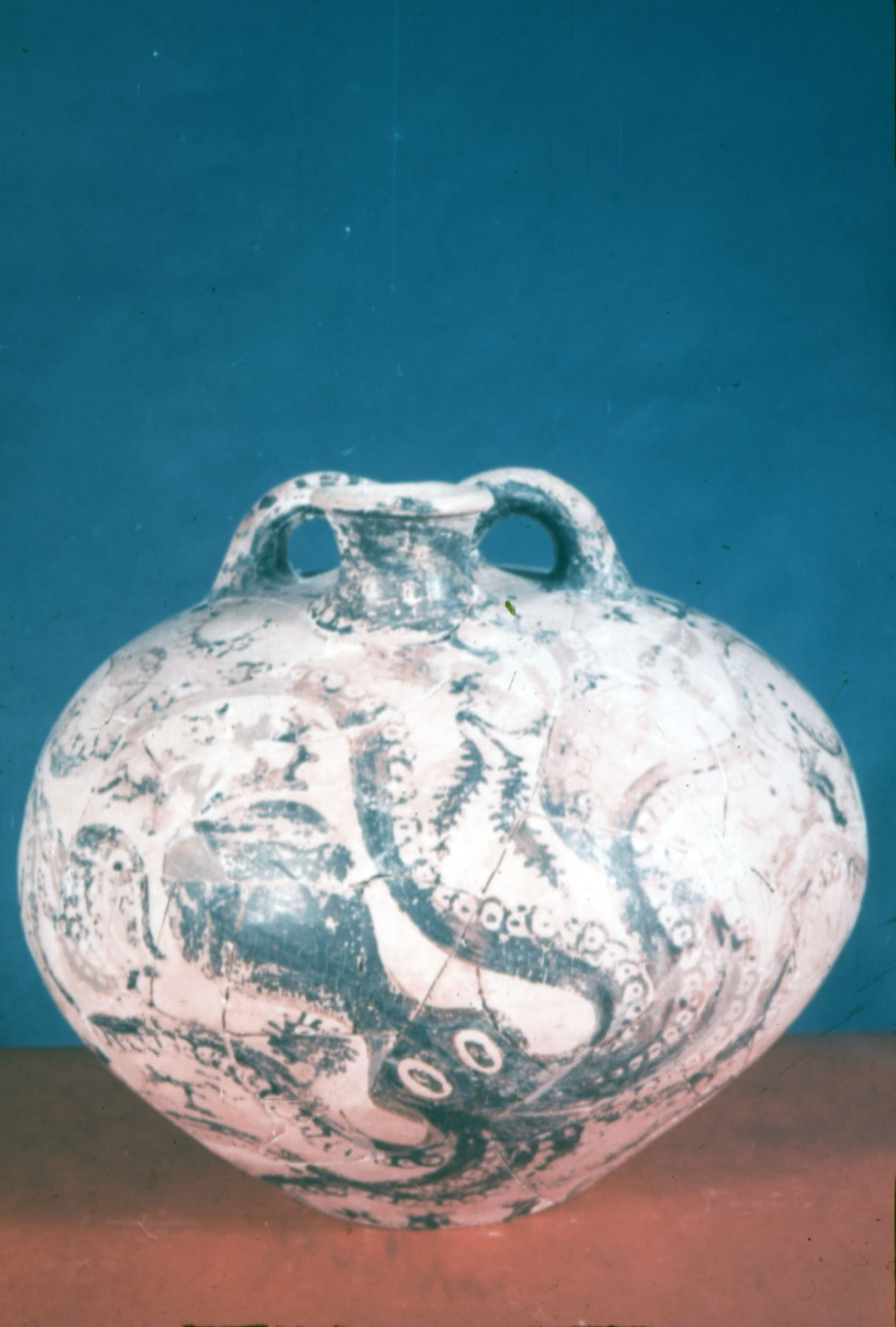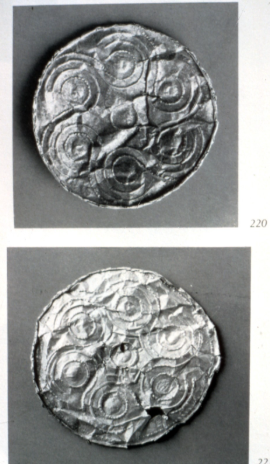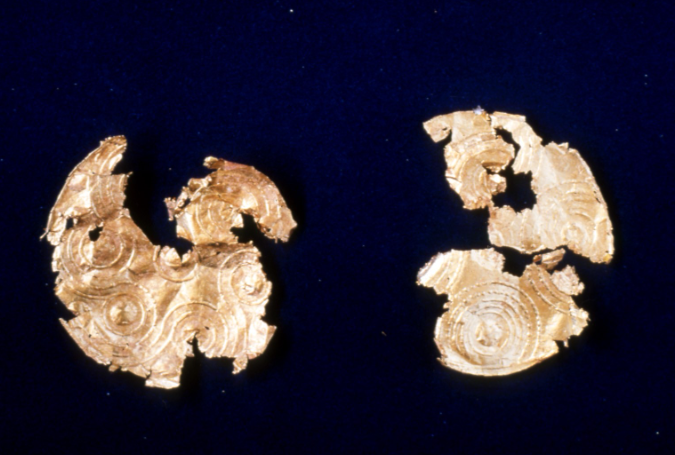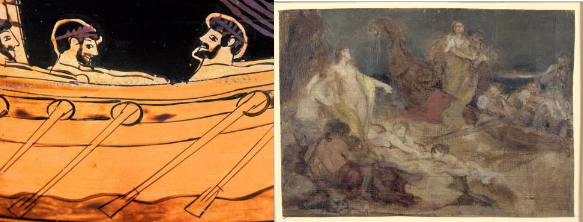The ocean has always been something that piques the interest of humans in more ways than one. It shapes human societies and provides people with needs and desires that only it could fulfill (May 2022). The ocean aids in trade from one port to the next, helping build alliances with people from all around the world. And yet, there is still so much more to it than only a means for survival. A want for seafood, a want for entertainment or comfort, the desire to know all of its depths, that is what the ocean provides us with. When we think of older times, back during the Before Christ Era (B.C.E.), one can imagine that the reliance of the ocean was far greater and much more thrilling than we might think it to be. Especially in places like Greece. With all the rich cultures and opportunities around, the Greeks were sure to use their resources optimally. The Greeks had many influences during their time, but some of the most memorable in today’s day and age are the myths that were pictures and written about. Notoriously, the Odyssey had great establishment in Greek art with many depictions on vases and mosaics. It is not hard to imagine that the Odyssey was influential because of the Greek’s reliance on the ocean. The ocean, for the Greeks, played a large role in their religion, art, trade, and warfare.

During Minoan times, there was abundant love for pottery and vases. Often, these ceramic pieces would be decorated and painted showing all sorts of imagery. These clay configurations could hold valuable liquids—such as oil (Smarthhistory, 2018). For this specific piece, we see a vase highly detailed with a depiction of an octopus. Around its tentacles, it is surrounded by sea urchins, coral, and shells. For the Minoans, marine style pottery was of the highest regards. Late Minoan I was a time that had all potters making similar ceramic pieces to the Octopus vase. It is also stated that during this time, the Minoans traded frequently with places across the Mediterranean and Egypt (Smarthistory, 2018). This is where the love for marine life might have originated. The life at sea could have been seen as desirable and unpredictable, so when seamen would come back, their stories about the expansive waters ignited people’s want for marine style art. Another way that continues to show the oceans appeal is that even after the Minoans, we see the influence is carried over to the Myceneans, who made copies of these works.

During our time cataloging the Sackett slides, there were a plethora of images that had so many different aspects of Greek life. Sackett’s images help give a little more insight about what might have been some of the most common styles that people of this earlier time might have enjoyed and had multiple of. One in particular that was eye catching was this image of embossed metal discs. These small discs showed engraved rosettes that looked almost like they are forming waves. From this perspective, this piece furthers the suspicion that the ocean, or sea, was to the Greeks a thing of daily life. These coins were used as symbols of local life where people could use them at markets to purchase things like local produce. The etchings on the coins were used to show independence and individuality based on the region one resided in. So, in this case, these coins might have been used to show life in a seaside town or sea centered production in that area. Additionally, they also showed individuality because when used for trade, outsiders would see that the currency is specific to a location which could aid in figuring out what places buy the most of your things and will encourage you to trade with them again. Although we know little of the history of these discs, for the ancient Greeks, there was significance of daily use for these circular objects.

Now to the moment we have all been waiting for: how does the Greek’s perspective of the ocean shape their view around the Odyssey? For starters, the Odyssey is focused on the story of Odysseus, the main protagonist and hero who helps his men return home. He is the embodiment of different Greek ideals such as loyalty, perseverance, and virtue. For this specific topic, we will be diving deeply into a specific section of the poem: the sirens. While at sea, Odysseus had many life-threatening encounters, such as with Polyphemus, a cyclops. However, when he and his men encountered the sirens, Odysseus as a leader found self-control in himself enough to know that he must be restrained to the top of the sail, or else he too would succumb to the siren’s wails. Passing the night, Odysseus was able to keep his sanity, but most importantly his reputation. Without his urgency, Odysseus might not be considered the virtuous hero that he is to the Greeks. It goes to show that while out at sea, the longing for home will always anchor down someone as being with family and one’s own city shows the highest forms of loyalty. Thus, through the many eras of the Greeks, one of the most notable things that came out of it was a high regard for their mythology. There was a desire to be as well-respected and glorified as the characters in the poems within everyday human life. A big contributor to those ideals is that the ocean’s significance exceeds the borders that encapsulate it. Whether it be for trade, travel, or war, it was known that a journey out at sea will lead to great respect and stories for all those back at home to hear, and the shared remembrance with those stories create strong alliances.
